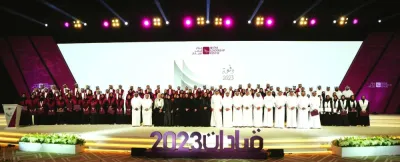Jamal Khashoggi’s murder at the Saudi consulate in Istanbul on October 2 caused a global outcry, opened Saudi Arabia to the possibility of sanctions and damaged the image of Crown Prince Mohamed bin Salman.
Washington believes it has more influence over Riyadh as its ally tries to repair the damage to the kingdom’s standing, and wants to use this leverage to end the Yemen war and rebuild Gulf unity, four sources familiar with the matter said.
On one front, there is movement.
In an apparent response to US and British pressure for a ceasefire in Yemen by the end of this month, the Saudi-led coalition fighting Iran-aligned Houthi rebels halted an offensive on the main port city of Hodeidah on Thursday.
Maintaining pressure on Riyadh, Washington imposed sanctions on 17 Saudi officials for their role in Khashoggi’s killing later on Thursday, and US senators introduced draft legislation which, if it became law, would suspend arms sales to Saudi Arabia over the journalist’s death and the Yemen war.
Saudi authorities did not respond to requests for comment.
A US State Department spokeswoman said Washington had been calling for a resolution throughout the Qatar and Yemen crises.
“We continue to engage on both of these issues with our partners in the region, including Saudi Arabia,” the spokeswoman, Heather Nauert, said.
The United States sees Saudi Arabia as a crucial player in the efforts to build unity in the Gulf, and Secretary of State Mike Pompeo visited Riyadh soon after Khashoggi’s killing.
But Washington sees the Yemen war as a destabilising factor in the region and wants an end to the conflict, which has killed more than 10,000 people and pushed Yemen to the brink of famine.
Saudi Arabia and its ally, the United Arab Emirates, also now have reasons to exit the war as it has proved costly and reached stalemate.
Since the death of Khashoggi, a Saudi national and US resident who was critical of the Crown Prince, US officials have also sought to sway Riyadh over its row with Qatar.
Gulf unity was shattered when Saudi Arabia, the UAE, Bahrain and Egypt severed trade and transport ties in June 2017, accusing Doha of supporting terrorism and Iran — charges Doha denies.
“They are seizing the opportunity to try to end the Qatar dispute,” a source with knowledge of US policy said.
Washington had wanted Gulf unity restored.
Kuwait said this month there was a “positive view to contain the Gulf crisis,” and a source familiar with US policy said diplomats were putting forward a plan on Qatar.
But neither side seems ready to cede ground.



